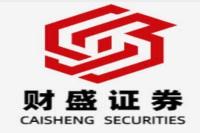Hong Kong's 2024 Blueprint: Forging Ahead as a Global Financial Powerhouse
Meta Description: Hong Kong's 2024 Policy Address details ambitious plans to solidify its position as a leading global financial center, focusing on enhancing RMB accessibility, optimizing asset management, and bolstering securities markets. Explore the key initiatives and their implications for investors and businesses.
Wow, Hong Kong's 2024 Policy Address is a game-changer! Forget incremental tweaks; this is a bold, ambitious vision to cement Hong Kong's status as a top-tier global financial hub – and it's packed with juicy details. Imagine a future where RMB flows freely, investment opportunities abound, and Hong Kong is the undisputed king of cross-border wealth management. That's the picture Chief Executive John Lee paints, and frankly, it's incredibly exciting. This isn't just another government document; it's a roadmap to economic prosperity, a blueprint for innovation, and a testament to Hong Kong's enduring resilience. We're diving deep into the specifics, breaking down the key initiatives, analyzing their potential impact, and providing you with the insights you need to navigate this evolving landscape. Whether you're a seasoned investor, a curious business owner, or simply someone fascinated by global finance, this detailed analysis will equip you with the knowledge to understand and capitalize on Hong Kong's ambitious plans. Get ready to unravel the secrets of this transformative policy address and discover the opportunities that lie ahead!
Deepening "Mutual Market Access" and Strengthening the RMB's Global Role
The 2024 Policy Address emphasizes Hong Kong's commitment to enhancing its role as the world's leading offshore RMB hub. This isn't just about maintaining the status quo; it's about aggressively expanding the capabilities and accessibility of the RMB. Think of it as a strategic, multi-pronged approach designed to turbocharge RMB internationalization.
The government plans to supercharge the "Mutual Market Access" scheme, focusing on several key initiatives:
-
Upgrading Infrastructure: This is about laying the groundwork for smoother, more efficient transactions. We're talking about upgrading the debt instrument central clearing system to make it easier for international investors to settle assets in various currencies. The goal is seamless integration, making Hong Kong a magnet for global capital.
-
Boosting Fixed Income Markets: The plan includes creating a central clearing system for RMB-denominated repurchase agreements (repos). This, along with making government bonds issued in Hong Kong more attractive as collateral in offshore markets, will significantly enhance the depth and liquidity of the RMB fixed-income market, thereby attracting more international investors.
-
Optimizing "Cross-border Wealth Management Connect": This initiative aims to further simplify and streamline cross-border investment flows between mainland China and Hong Kong, making it easier for individuals to access investment opportunities on both sides. Expect improvements in efficiency and accessibility.
Furthermore, the Policy Address highlights plans to:
-
Increase RMB Liquidity: Leveraging existing currency swap agreements with mainland China will allow the Hong Kong Monetary Authority (HKMA) to better support Hong Kong's economic development. This will ensure sufficient RMB liquidity to facilitate the growth of the offshore RMB market.
-
Enhance Real-time Payment Systems: Improving the nighttime cross-border functionality of the Hong Kong RMB real-time gross settlement (RTGS) system will facilitate global settlements, making it more convenient for international businesses to operate in the RMB.
-
Diversify RMB Financing Channels: The government is exploring ways to offer more diverse financing channels in RMB, providing businesses with a wider range of options and enhancing the overall attractiveness of the RMB market.
Expanding Investment Products and Attracting Global Capital
The Policy Address doesn't stop at infrastructure improvements; it's also focused on increasing the variety and attractiveness of RMB-denominated investment products.
This involves:
-
Encouraging More RMB Stock Trading: The Hong Kong Exchanges and Clearing Limited (HKEX) will actively encourage more listed companies to add RMB stock trading counters, broadening the range of RMB equities available.
-
Boosting RMB Bond Issuance: The government will support the issuance of more green and sustainable offshore RMB bonds in Hong Kong. This aligns with global ESG (Environmental, Social, and Governance) investment trends.
-
Increasing Mainland Government Bond Issuance in Hong Kong: The government aims to secure an increase in the volume and frequency of mainland government bond issuance in Hong Kong. This will boost the attractiveness of the Hong Kong market for fixed-income investors.
-
Expanding "Bond Connect" (Southbound): Discussions are underway with mainland authorities to modestly expand "Bond Connect" (Southbound) to include a wider range of qualified domestic investors, such as securities and insurance companies, beyond banks. This will unlock significant new investment flows into Hong Kong's bond market.
-
Developing RMB Repo and Collateral Products: The government will actively study and launch products using onshore RMB bonds for repo and collateral purposes, enhancing liquidity management for offshore investors.
Strengthening Hong Kong's Position as an International Asset and Wealth Management Hub
Hong Kong’s already a major player in asset and wealth management, but the government isn't resting on its laurels. The goal? To become the undisputed global champion by 2028.
The strategy consists of:
-
Boosting Collaboration with Sovereign Wealth Funds: The initiative focuses on partnering with large sovereign wealth funds from regions like the Middle East to establish co-investment funds for investing in mainland China and other regions. This will attract significant capital inflows.
-
Improving the "Capital Investment Entrant Scheme": The scheme is being tweaked to make it more attractive to high-net-worth individuals. Effective immediately, investments in residential properties worth HKD 50 million or more are now included, with a cap of HKD 10 million on real estate investments. Further enhancements are planned for March 2024.
-
Broadening Tax Relief: The government will consult with industry stakeholders to expand the types of eligible transactions for tax relief for funds and single family offices. This makes Hong Kong a more attractive location for these entities.
Enhancing Hong Kong's Securities Market
The Policy Address outlines several measures to further optimize Hong Kong's securities market:
-
Attracting Overseas Capital: The government aims to list ETFs tracking Hong Kong stock indices on exchanges in the Middle East, attracting investment from the region.
-
Encouraging Listings: Leveraging the "Mutual Market Access" scheme, Hong Kong will attract more international and mainland companies to list on the Hong Kong Stock Exchange (HKEX), aiming for more high-profile IPOs.
-
Optimizing Listing Approvals: The Securities and Futures Commission (SFC) and HKEX will streamline the listing approval process, making it more predictable and efficient.
-
Improving Market Efficiency: The SFC and HKEX will implement measures to improve market efficiency and reduce trading costs, including reviewing margin deposit arrangements and optimizing margin and collateral requirements. This will make the market more attractive for both investors and issuers.
Facilitating Cross-Border Financial Arrangements
The government is making it easier than ever for individuals to conduct cross-border financial transactions:
-
Integrating Payment Systems: The HKMA and the People's Bank of China (PBOC) are working to integrate the Faster Payment System (FPS) in Hong Kong with the cross-bank online payment clearing system (IBPS) in mainland China, enabling faster, more convenient small-value cross-border payments.
-
Issuing Bank Cards in Mainland China: Hong Kong-registered banks' branches in mainland China will be allowed to issue bank cards in mainland China, improving the convenience for Hong Kong residents in mainland China.
Developing an International Gold Trading Hub
Recognizing Hong Kong's leading role in gold imports and exports, the government plans to build a world-class gold storage facility to attract more users and investors to store and trade physical gold in Hong Kong. This will stimulate the growth of related financial services, creating new opportunities for the financial sector. A dedicated task force will oversee this project, including strengthening regulatory frameworks and exploring integration with mainland China's "Mutual Market Access" initiative.
Frequently Asked Questions (FAQs)
Q1: What is the overall goal of these initiatives?
A1: The overarching goal is to solidify Hong Kong's position as a leading global financial center, particularly focusing on RMB internationalization and attracting global capital.
Q2: How will these changes benefit investors?
A2: Investors will benefit from increased investment opportunities, greater liquidity, improved market efficiency, and easier access to cross-border financial transactions.
Q3: What are the potential risks associated with these initiatives?
A3: Potential risks include geopolitical uncertainties, regulatory changes, and market volatility. However, the government's proactive steps aim to mitigate many of these risks.
Q4: When will we see the full effects of these changes?
A4: The implementation of these initiatives will be phased, with some effects visible in the short term and others taking longer to materialize.
Q5: How will these changes impact businesses operating in Hong Kong?
A5: Businesses will benefit from improved access to financing, a more efficient securities market, and increased opportunities for cross-border trade and investment.
Q6: What role does technology play in these plans?
A6: Technology plays a crucial role, with upgrades to payment systems and the use of fintech to improve efficiency and accessibility being key components of the strategy.
Conclusion
Hong Kong's 2024 Policy Address is a clear signal of its unwavering commitment to securing its future as a dominant global financial force. The ambitious plan, while ambitious, is grounded in a realistic assessment of the current landscape and incorporates strategies designed to navigate potential challenges. The emphasis on RMB internationalization, the enhancement of asset and wealth management capabilities, and the optimization of the securities market paints a compelling picture of a dynamic financial hub poised for sustained growth. While challenges remain, this comprehensive roadmap provides a framework for Hong Kong to not only maintain but enhance its leading role in the global financial arena. The coming years will be pivotal in observing the effective implementation of these plans and their impact on the global financial landscape. Stay tuned!



